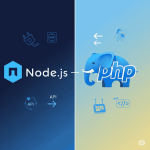Introduction
APIs are the backbone of modern web applications. Whether you’re creating a SaaS platform, mobile app backend, or internal service, your API must be scalable, reliable, and maintainable.
Node.js with Express is one of the most popular choices for building APIs because it’s lightweight, fast, and developer-friendly. In this article, we’ll explore best practices for building scalable APIs with Express and Node.js.
1. Use a Layered Architecture
Organize your code into clear layers:
- Routes – Handle incoming requests.
- Controllers – Contain business logic.
- Services – Manage data processing and communication with the database.
- Models – Define database schemas.
👉 This separation of concerns makes your API easier to scale and maintain.
2. Implement Proper Error Handling
Use Express middleware for centralized error handling:
app.use((err, req, res, next) => {
console.error(err.stack);
res.status(err.status || 500).json({ message: err.message });
});
👉 This ensures consistent error responses across your API.
3. Enable Environment Configuration
Use .env files to store sensitive data like API keys, database URIs, and secrets.
Example with dotenv:
require('dotenv').config();
const PORT = process.env.PORT || 5000;
4. Optimize for Performance
- Use caching (Redis, in-memory caching) for frequently accessed data.
- Use pagination for large result sets to reduce payload size.
- Optimize database queries and indexes.
5. Implement Security Best Practices
- Sanitize and validate all input to prevent SQL Injection or XSS.
- Use Helmet.js to set secure HTTP headers.
- Implement rate limiting to prevent abuse (e.g.,
express-rate-limit).
6. Version Your API
Use URL-based versioning like /api/v1/resource to ensure backward compatibility as your API evolves.
7. Add Automated Testing
Write unit tests for controllers and integration tests for endpoints using tools like Jest or Mocha.
8. Monitor and Log Requests
- Use
morganfor logging HTTP requests. - Monitor API performance using tools like PM2 or New Relic.
Conclusion
Building scalable APIs with Express and Node.js isn’t just about writing endpoints—it’s about creating a maintainable, secure, and high-performance architecture. By following these best practices, your API will be ready to handle growth and changing business requirements.
👉 At Redirect India, we build scalable APIs with Node.js and Express for businesses of all sizes. Need help with your next API project? Contact us today!



